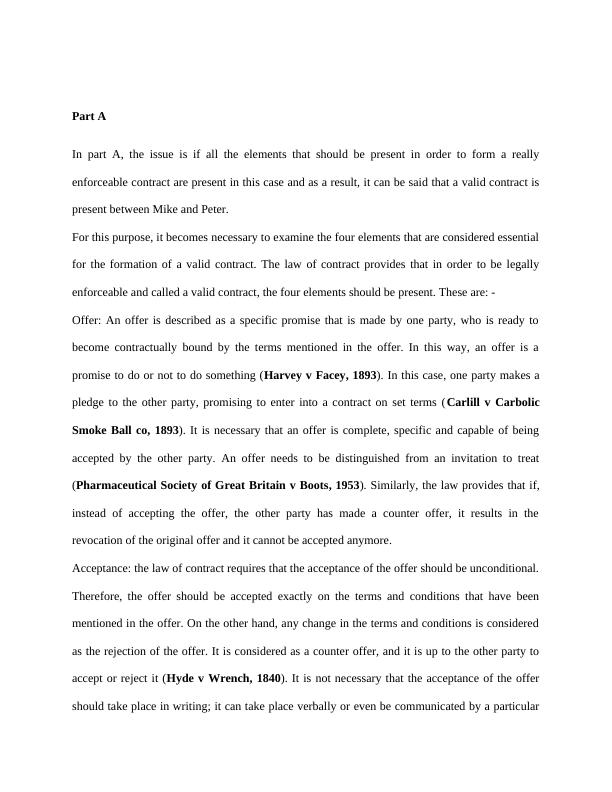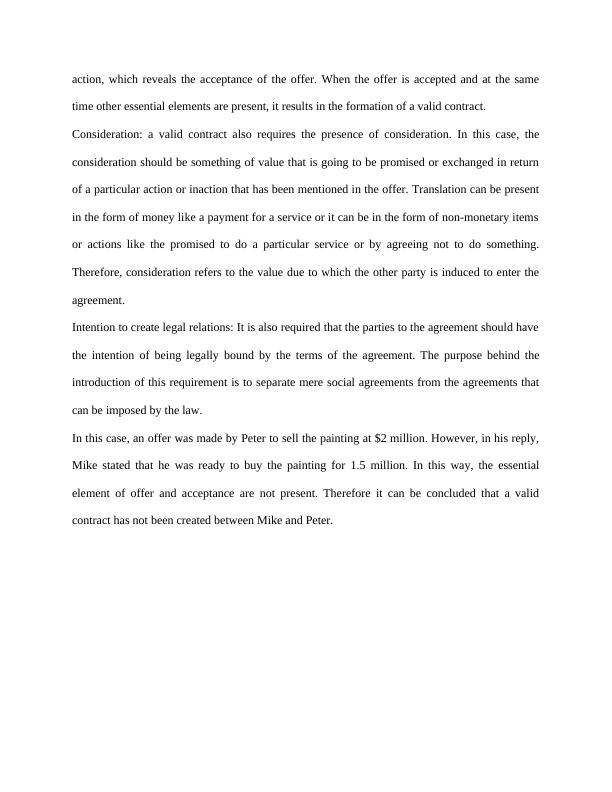Elements of a Valid Contract and Liability under Section 18 of Australian Consumer Law
Added on 2023-06-13
5 Pages1190 Words358 Views
End of preview
Want to access all the pages? Upload your documents or become a member.
Principles of Law of Contract and Alternative Dispute Resolution
|13
|2909
|292
Contract Law Case Study
|7
|1604
|370
Contract Law: Validity of Offer and Exclusion Clause
|7
|3341
|256
Case Study – Legal Intention of the Parties
|9
|2641
|180
LEGAL ENFORCEMENT OF AN AGREEMENT.
|15
|1008
|83
Contract Law: Validity of Contract and Refund Claim in Gaia v SuperNatural Case
|5
|1665
|243


